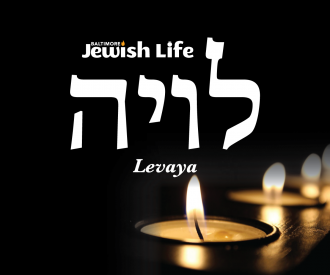The New York City chapter of the pro-Palestinian organization Jewish Voice for Peace and another New York-based pro-Palestinian group—called "Jews Say No!"—claimed responsibility for a fake edition of the New York Times distributed around the city on Feb. 2 that included satirical commentary on news coverage of the Israeli-Palestinian conflict.
The two groups called the fake issue a “parody.” In addition to distributing print copies, they set up a fake Twitter account and a website that mimicked the New York Times design. Both the Twitter page and the website have since been suspended.
The fake newspaper was intended to “point out how biased current reporting is on Israel and Palestine and to show what a paper that was fair and accurate could look like,” one of the fake paper’s writers said in a statement, the Forward reported.
The New York Times said that it shut down the online version of the paper because it was “deliberately designed to trade on our name and mislead users.”
“We are extremely protective of our brand and other intellectual property and object to these two groups—or any other groups—attempting to cloak their political views under the banner of the New York Times,” said Eileen Murphy, a spokesperson for the newspaper. “It is our firm belief that those advocating for political positions are best served by speaking openly, in their own voice.”
One of the articles in the fake paper announced a “new editorial policy” towards covering the Israeli-Palestinian conflict.
“We are aware that a disproportionate number of our news stories in the past year and a half have focused on Israeli government statements and positions or the views of Israeli Jewish citizens; only a small fraction have featured Palestinian speakers, whether officials and advocates or residents who experience the effects of Israeli policies in everyday life,” the fake editorial stated.
Ironically, in its real-life coverage, the New York Times has frequently been accused of disproportionately relying on Palestinian sources and presenting stories from the Palestinian perspective. For instance, the Committee for Accuracy in Middle East Reporting in America (CAMERA) media watchdog—a longtime critic of the New York Times—recently prompted the newspaper to issue a correction regarding pro-Palestinian bias in an article about Palestinians facing eviction from Jerusalem’s Old City.
The New York Times correction stated, “The Jerusalem Journal article on Jan. 15 about Palestinian residents of Jerusalem's Old City who face eviction by Israeli organizations gave an incomplete description of the legal disputes in several cases. The descriptions were based on the [Palestinian] tenants' accounts; the article should have included additional information from court documents or from the [Israeli] landlords. (The landlords are organizations that have reclaimed properties owned by Jews before Israel was established in 1948.)”















